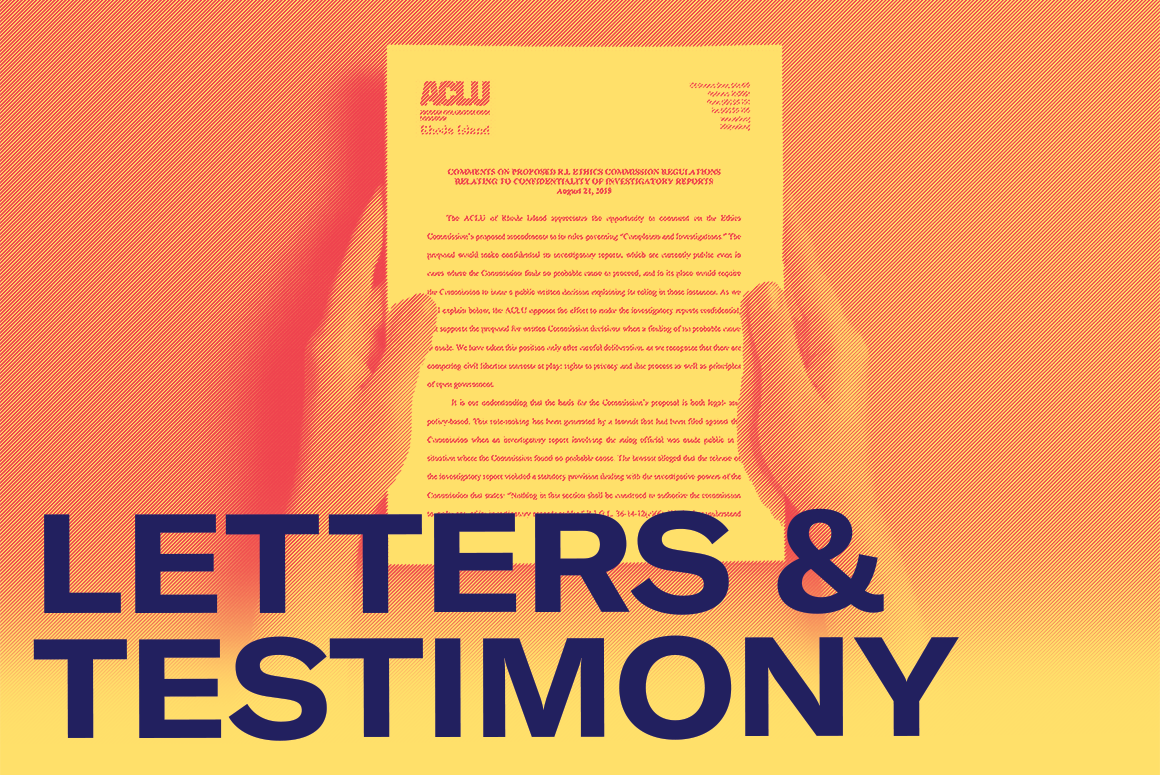The American Civil Liberties Union of Rhode Island has shared this week with the presidents and general counsel of Rhode Island’s colleges and universities a detailed letter from the National ACLU that outlines their responsibilities and rights when dealing with Immigration and Customs Enforcement (ICE) investigations and enforcement actions.
Amid the growing retaliatory crackdown against noncitizen students for their First Amendment-protected speech and advocacy, the letter explains that colleges and universities are not violating the law by providing housing or services to noncitizen students, including students whose visas have been revoked. It further advises institutions that they are legally able to refuse to comply with warrantless searches of non-public areas, like dorm rooms, by ICE agents.
These concerns are not hypothetical. While attempting to locate Columbia student and lawful permanent resident Yunseo Chang for immigration arrest several weeks ago, ICE first sent two administrative subpoenas to Columbia University seeking residence hall security camera footage and student identification swipe card access data, and then obtained a warrant to search a Columbia residence hall, alleging the university was illegally “harboring” individuals present in the country in violation of immigration law.
The letter also outlines a legal framework for responding to administrative subpoenas from ICE. In consultation with legal counsel, universities generally maintain the right to not respond to administrative subpoenas unless and until ICE obtains an enforcement order from a judge. Universities also have the right to publicize the subpoenas or alert students if their information has been targeted by an ICE subpoena.
“Universities must do everything they can to protect their students from intimidation or targeting by ICE, and they have the legal right to do so,” said Nathan Freed Wessler, deputy director of the ACLU’s Speech, Privacy, and Technology Project. “We reject the federal government’s extreme claim that housing and educating noncitizen students can violate the law. We hope this letter will empower institutions to stand firm in the face of radical bullying tactics.”
ACLU of Rhode Island Executive Director Steven Brown added: “As institutions dedicated to higher education, colleges and universities have a unique responsibility to ensure that students can focus on their education without fear of immigration enforcement.”

